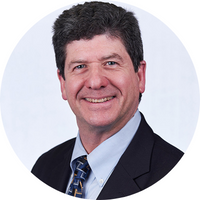
Key Takeaways:
- Ephraim Honig compares the toughness of being a top 10% scientist vs. being a top 10% business leader
- Advice to recent chemistry/chemical engineering grads on what to expect from working for a small company
- Honig’s response to customer expectations in a “same-day delivery” world
You have a PhD in chemistry from Brown and an MBA. from Harvard Business School. What’s tougher, and why: Being a top 10% scientist or a top 10% business leader?
Both are important. Early in my career I was a senior staff scientist but I also had to learn what “the business” needed of me to succeed. As I developed my formal business education and experience I also relied on my prior technical expertise to better assess the business opportunities, so there’s really a ying-yang relationship. Certainly, in both areas, as I advanced, the importance of the “soft” people skills became more important.
I took 4 years to get my PhD, but only 2 years for the MBA. The complexity of the business world makes it harder to balance the needs of our stakeholders - our customers, who want the right high quality products delivered quickly - with our employees, who need an engaging and challenging environment, all within a suitable business model that sustains and grows the company, while we battle with multi-billion dollar multi-national giants who would like to eat our lunch.
For recent chemistry and chemical engineering graduates, what should they know about working for a small company?
YOU MATTER and can make a big difference at the right company! It’s the big fish in a small pond analogy. If your company has 20 employees you represent 5% of the organization. There should be opportunities to get involved in many areas not just the main one you were hired for.
How have your parents influenced your leadership style?
Education and discussion were always important in my family traditions and cultural heritage. My father, as a young boy, kept his family fed during WW II. My mother lost her father as a teenager and her mother in her early twenties. They taught me the value of resilience, opportunity, hard work and civility and I bring that to my leadership style.
How is the Strem Chemicals of today different from the one you joined over 20 years ago?
Twenty years ago most of our products were offered at small scale (grams to kilos) and used primarily in R&D. Today, while the research market is still our core business, we offer products used in commercial applications and made above a metric ton. Another difference is the increased requirements for regulatory compliance and associated documentation.
Strem Chemicals aside, what company do you most admire, and why?
Nike – because of their slogan -- Just Do It! That goes back to what my parents taught me by their actions -- hard work, don’t quit, be positive, just do it! But I also like Apple’s innovative high quality products and Amazon’s ability to serve so many people with some many products and services efficiently.
Consumers, generally, have mounting expectations about how quickly goods are delivered to them. Are you seeing this with Strem customers? How have you responded?
Yes, customers expect fast Amazon-like shipments. Strem’s mission is to provide specialty chemicals of high purity in a timely fashion so we have always been focused on fast delivery. We’ve put the necessary people in place across the different functional groups, such as customer service and warehouse staff, and provided them with new tools as technology has advanced to insure an efficient fulfilment process. That also includes the right analytics to set manufacturing schedules to insure we end up with the right inventory on the shelf when the customer places an order.
You were educated in the U.K. and the U.S. What did you enjoy most from each of those learning environments?
I liked the UK system of undergraduate focus on your concentration so I took primarily chemistry courses. That allowed me to start my research 1st semester of grad school in the U.S. The U.S. graduate academic environment was likely more intense than it would have been had I stayed in the UK. For this stage in my education, training and development I believe it better matched my enthusiasm and helped set me up for success.
In both environments I had great professors, student colleagues and an active social life.

Ephraim Honig is CEO at Strem Chemicals, Inc. He has been with Strem for over 20 years. He received his undergraduate degree from Warwick University, his PhD in chemistry from Brown, and his MBA from Harvard.
This article has been edited for length and clarity. The opinions expressed in this article are the author's own and do not necessarily reflect the view of their employer or the American Chemical Society.
Copyright 2019 American Chemical Society (All Rights Reserved)








